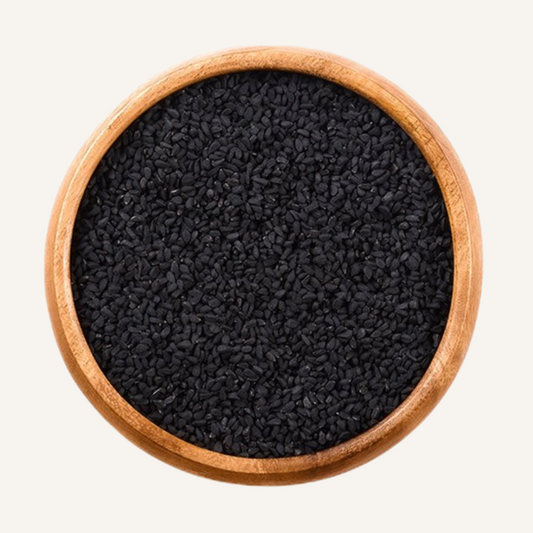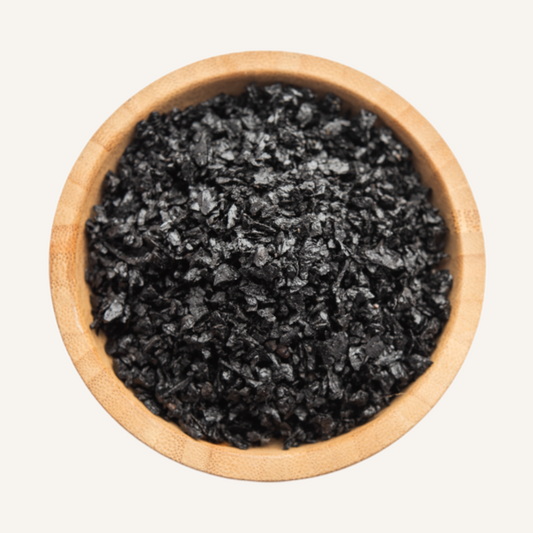
The Incredible Health Benefits of Adaptogens: Nature's Secret Weapon
Ilyas KhanShare
Introduction:
In today's fast-paced world, stress has become an inevitable part of our daily lives. Whether it is work pressure, financial worries, or personal problems, stress can have a profound impact on our physical and mental health. However, nature has provided us with a powerful tool to combat stress and improve overall health – adaptogens. Adaptogens are a class of herbs and plants that help the body adapt to stress and provide a range of health benefits. In this article, we will explore the incredible health benefits of adaptogens and how you can incorporate them into your daily routine.
What are Adaptogens?
Adaptogens are a group of herbs and plants that help the body adapt to stress. They work by regulating the hypothalamic-pituitary-adrenal (HPA) axis, which is the body's stress response system. The HPA axis regulates the production of hormones such as cortisol, which plays a key role in the body's response to stress.
Adaptogens have been used in traditional medicine for centuries to improve overall health and well-being. They are non-toxic, have no negative side effects, and can be taken over a long period of time without developing a tolerance. Some of the most popular adaptogens include:
- Ashwagandha
- Rhodiola
- Holy Basil
- Ginseng
- Licorice root
- Maca
Health Benefits of Adaptogens:
Adaptogens offer a range of health benefits, including:
- Stress Reduction:
Adaptogens help the body adapt to stress by regulating the HPA axis. They reduce the production of cortisol and other stress hormones, which can help reduce the negative effects of stress on the body. Studies have shown that adaptogens can help reduce anxiety, depression, and fatigue.
- Improved Immune Function:
Adaptogens have immune-boosting properties that can help improve the body's ability to fight off infections and diseases. They stimulate the production of white blood cells and increase the activity of natural killer cells, which are important for fighting off infections.
- Increased Energy and Endurance:
Adaptogens can help increase energy and endurance by improving oxygen uptake and utilization in the body. They also improve the body's ability to handle physical and mental stress, which can lead to increased endurance and stamina.
- Improved Cognitive Function:
Adaptogens have been shown to improve cognitive function, including memory, concentration, and learning ability. They also have neuroprotective properties, which can help protect the brain from damage caused by stress and aging.
- Anti-Inflammatory Properties:
Adaptogens have anti-inflammatory properties that can help reduce inflammation in the body. Chronic inflammation is linked to a range of health problems, including heart disease, diabetes, and cancer.
How to Use Adaptogens:
Adaptogens can be used in a variety of ways, including:
- Herbal tea: Many adaptogens can be brewed into a tea. Simply add the herb to hot water and let it steep for a few minutes.
- Capsules or tablets: Adaptogens are available in capsule or tablet form, making it easy to incorporate them into your daily routine.
- Powder: Some adaptogens are available in powder form, which can be added to smoothies, juices, or other beverages.
- Tinctures: Tinctures are concentrated liquid extracts of herbs that can be taken orally. They are often used for adaptogens that are less palatable.
Conclusion:
Adaptogens are a powerful tool for improving overall health and well-being. They help the body adapt to stress and provide a range of health benefits, including stress reduction, improved immune function, increased energy and endurance, improved cognitive function, and anti-inflammatory properties.
With a variety of ways to incorporate adaptogens into your daily routine, it is easy to experience the benefits of these amazing plants. However, it is important to consult with a healthcare provider before taking any new supplements, especially if you are pregnant, breastfeeding, or have a medical condition.
In conclusion, adaptogens are a natural and effective way to combat stress and improve overall health. By incorporating adaptogens into your daily routine, you can experience a range of health benefits and improve your quality of life. So why not give adaptogens a try and see the difference they can make in your life?
References:
-
Panossian A, Wagner H. Adaptogens: A Review of Their History, Biological Activity, and Clinical Benefits. HerbalGram. 2011;90:52-63.
-
Olsson EM, von Schéele B, Panossian AG. A Randomized, Double-Blind, Placebo-Controlled, Parallel-Group Study of the Standardized Extract SHR-5 of the Roots of Rhodiola rosea in the Treatment of Subjects with Stress-Related Fatigue. Planta Med. 2009 Feb;75(2):105-12.
-
Chandrasekhar K, Kapoor J, Anishetty S. A Prospective, Randomized Double-Blind, Placebo-Controlled Study of Safety and Efficacy of a High-Concentration Full-Spectrum Extract of Ashwagandha Root in Reducing Stress and Anxiety in Adults. Indian J Psychol Med. 2012 Jul;34(3):255-62.
-
Mishra LC, Singh BB, Dagenais S. Scientific Basis for the Therapeutic Use of Withania somnifera (Ashwagandha): A Review. Altern Med Rev. 2000 Aug;5(4):334-46.
-
Pratte MA, Nanavati KB, Young V, Morley CP. An Alternative Treatment for Anxiety: A Systematic Review of Human Trial Results Reported for the Ayurvedic Herb Ashwagandha (Withania somnifera). J Altern Complement Med. 2014 Dec;20(12):901-8.
-
Singletary K. Ginger: An Overview of Health Benefits. Nutr Today. 2010;45:S171-S183.
-
Srivastava JK, Shankar E, Gupta S. Chamomile: A Herbal Medicine of the Past with Bright Future. Mol Med Report. 2010 Nov 1;3(6):895-901.
-
Jurenka JS. Therapeutic Applications of Pomegranate (Punica granatum L.): A Review. Altern Med Rev. 2008 Jun;13(2):128-44.
-
Kuo J, Chen KW, Cheng IS, et al. The effect of eight weeks of supplementation with Eleutherococcus senticosus on endurance capacity and metabolism in human. Chin J Physiol. 2010 Feb 28;53(1):105-11.








